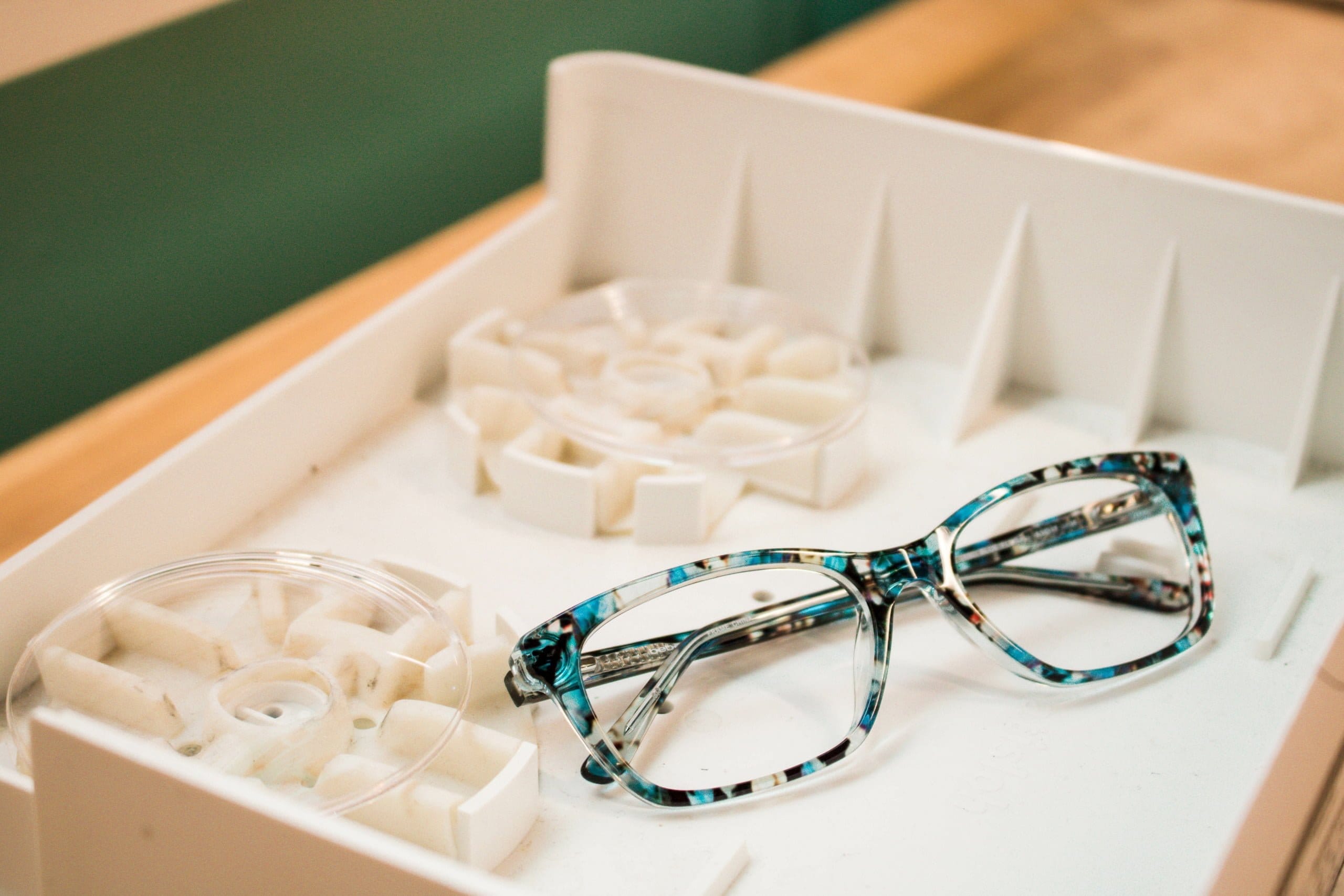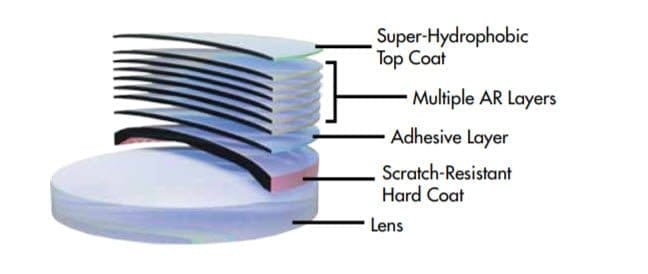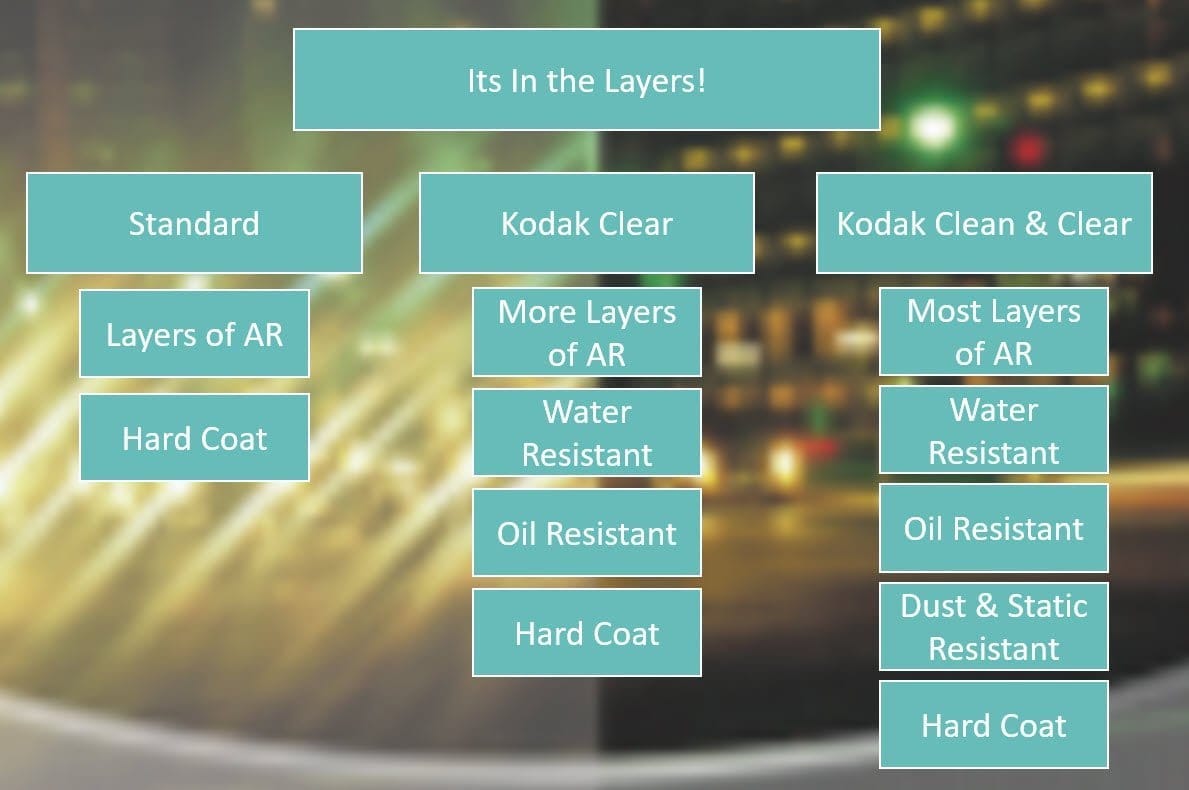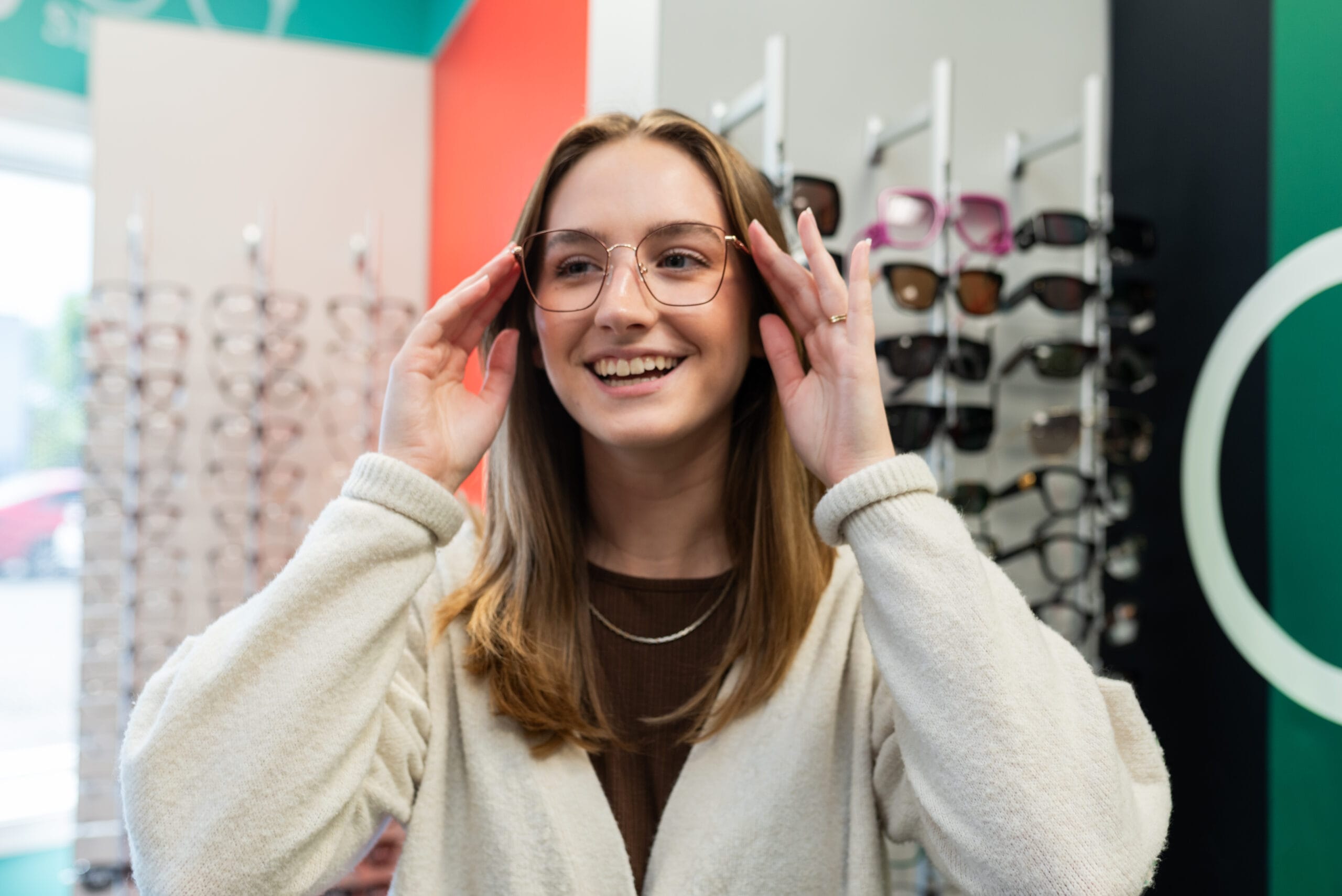The types of lenses for glasses and lens coatings you choose can make a big difference in the quality of your eyeglasses and quite literally make or break your visual clarity. This will depend on your prescription, your frames, as well as your lifestyle. There are a few choices when it comes to lenses and lens coatings, so let’s break it down so you can choose the best lens that best suits your vision needs.
Types Of Lenses For Glasses
The Lens Materials
The material your glasses lens is made of plays a big part in lens performance. Lenses are made from a wide variety of materials, each of which has different properties and characteristics. The glasses lens you choose comes down to weighing the pros and cons and deciding what’s best for you. Our team of opticians will help you consider all factors, like your glasses frame choice, your prescription, and lifestyle to help pick out the right lens for your glasses.

CR-39 lenses
Cr-39 lenses are the most basic glasses lens material available. It has no added features and is our most inexpensive option.
This lens is thicker and heavier than the other lens materials we offer, which makes it less compatible with rimless or semi-rimless frames and can not be used with any drill mount frames. Additionally, some pros for this lens is that it does provide better visual clarity over our polycarbonate lenses.
Thinner, Lighter, polycarbonate lenses
These lenses are made out of a durable, impact-resistant polycarbonate material. They are easily the most versatile lenses for glasses when it comes to adding additional features such as anti-glare, Transitions®, polarization, etc. Polycarbonate lenses are also a great option for safety glasses. These lenses also come with 100% UV protection.
Trivex polycarbonate lenses
Trivex is one of the most lightweight, impact-resistant eyeglass lens materials available. This lens also offers better visual clarity over our basic polycarbonate lenses. These lenses also have a 100% UV filter.
1.67 and 1.74 hi-index lenses
These are the thinnest and lightest lenses we carry at Dr. Tavel. These also offer 100% UV protection, and have a higher visual clarity than other polycarbonate lenses. These are best for higher prescriptions to minimize the thickness of the lens in your eyeglasses.

Types of Lens Coatings
Think about how you use eyeglasses. Do you spend most of your time indoors or outdoors? Do you spend a lot of time in front of a computer? Do you struggle driving at night? Do you play sports? Your lifestyle and habits should inform your coating decisions. Our opticians at Dr. Tavel are prepared to guide you through these options. We offer a variety of lens coatings, designed to protect your lenses and offer vision enhancing properties—from glare reduction to scratch resistance. Depending on your vision needs and your lifestyle, choosing the right lens coating will improve your comfort, safety and overall vision.
What is Anti-Reflective Coating?
We recommend an AR coating for all eyeglass wearers. AR, also known as anti-glare, reduces glare caused by light hitting the surface of your lenses. Lenses with AR are more durable, provide clearer vision, reduce eye strain, are easier to clean, and reduce distracting reflections, making your eyes more visible to others.
Will a lens coating rub off?
Our non-glares lenses are made from multiple layers of protection. Each feature is applied to the lens layer by layer and then hard coated to make it part of the lens. Because of this process, the non-glare is part of the lens, therefore not a coating that is easily worn off or damaged.

Here are all the anti-glare lens options we offer at Dr. Tavel:
Standard Clarifier
Our Clarifier lens offers a basic AR layer and a hard coat. This lens shields your eyes from glare and other harsh reflections and protects your lens from scratches.
Kodak Clear
Notably, the Kodak Clear is a better non-glare than our standard Clarifier. It has more layers of AR, a water-resistant layer, an oleophobic (oil and smudge resistant) layer, and a hard coat for scratch protection.
Kodak Clean and Clear
Kodak Clean and Clear is our premium non-glare lens option. It has the most layers of anti-glare, a hydrophobic layer, an oleo-phobic layer, dust and static resistant layers, and a hard coat. These lenses result in reduced eyestrain, allow for safer and more comfortable night driving, are easy to clean and scratch resistant, repels water, and are generally more aesthetically appealing lenses.

Kodak Total Blue Lenses
The Kodak Total Blue Lens is a hybrid of lens material and coating that filters up to 80% of HEV Blue Light and offers protection against UV rays. It also has a standard hard coat, hydrophobic top coat, and anti-glare layers. We currently only offer Kodak Total Blue with our 1.67 lens material.
Transitions Light Intelligent Lenses
Transitions are photochromic lenses that seamlessly adapt to changing light situations, changing from clear to dark when outdoors, and back to clear when you’re inside. Additionally, Transitions lenses adapt to your settings in a matter of seconds, so you can go from outside to inside without that weird lagging adjustment time. We offer 3 different Transitions lenses at Dr. Tavel, which all contain sun and blue light protection. These lenses are equipped with the most responsive light and temperature technology to date. All Transitions lens options are available in most lens materials, lens styles, non-glare lens coatings, and power ranges.
Let Dr. Tavel Help You Find the Perfect Fit
Since there are so many choices when it comes to lenses and lens coatings, know that you can lean on the team at Dr. Tavel to help you choose the best lenses that best suits your vision needs.

